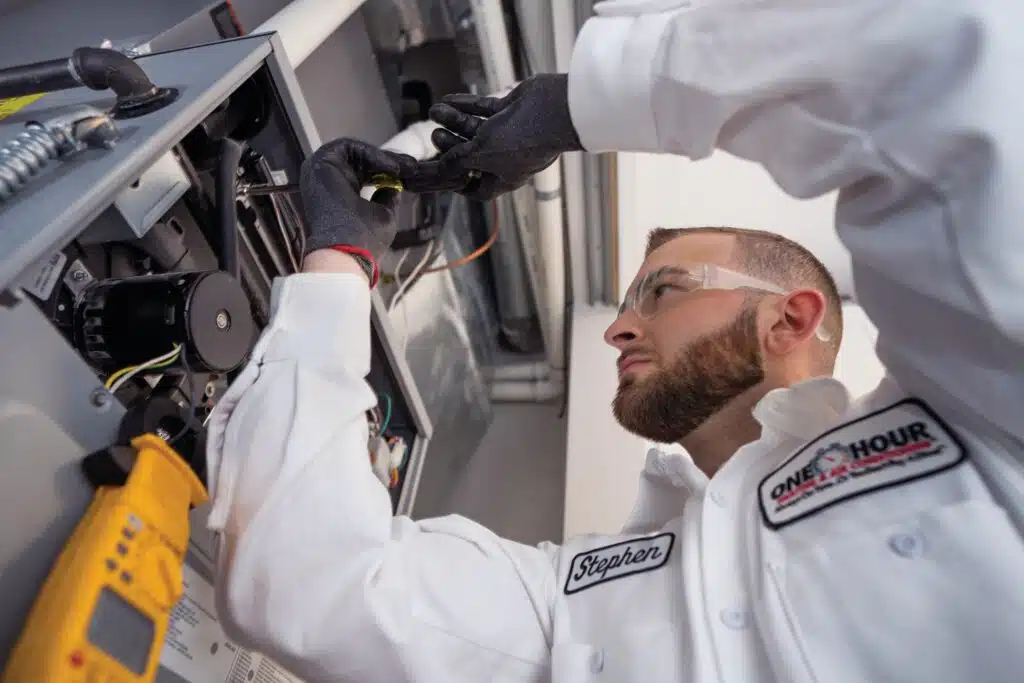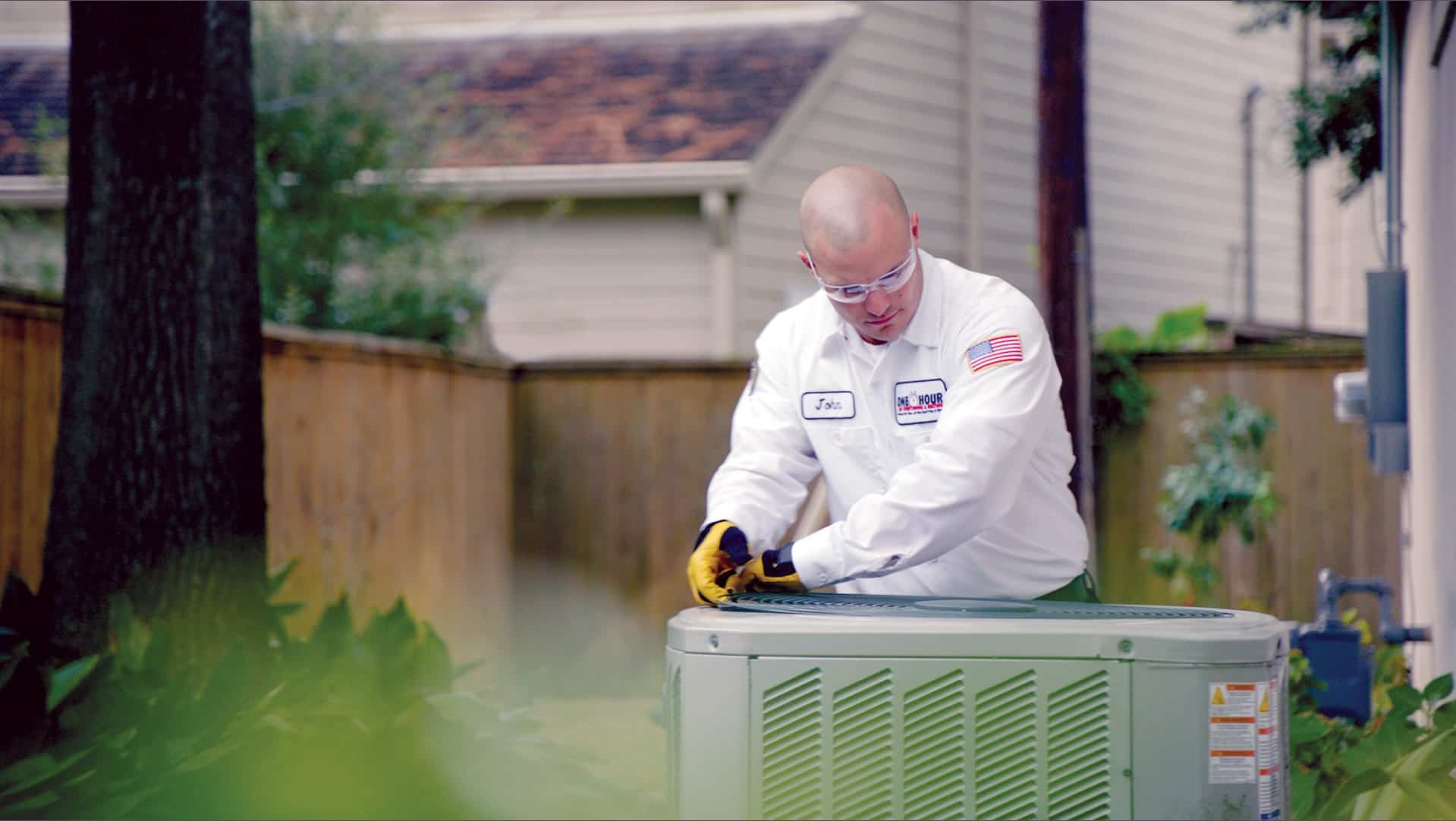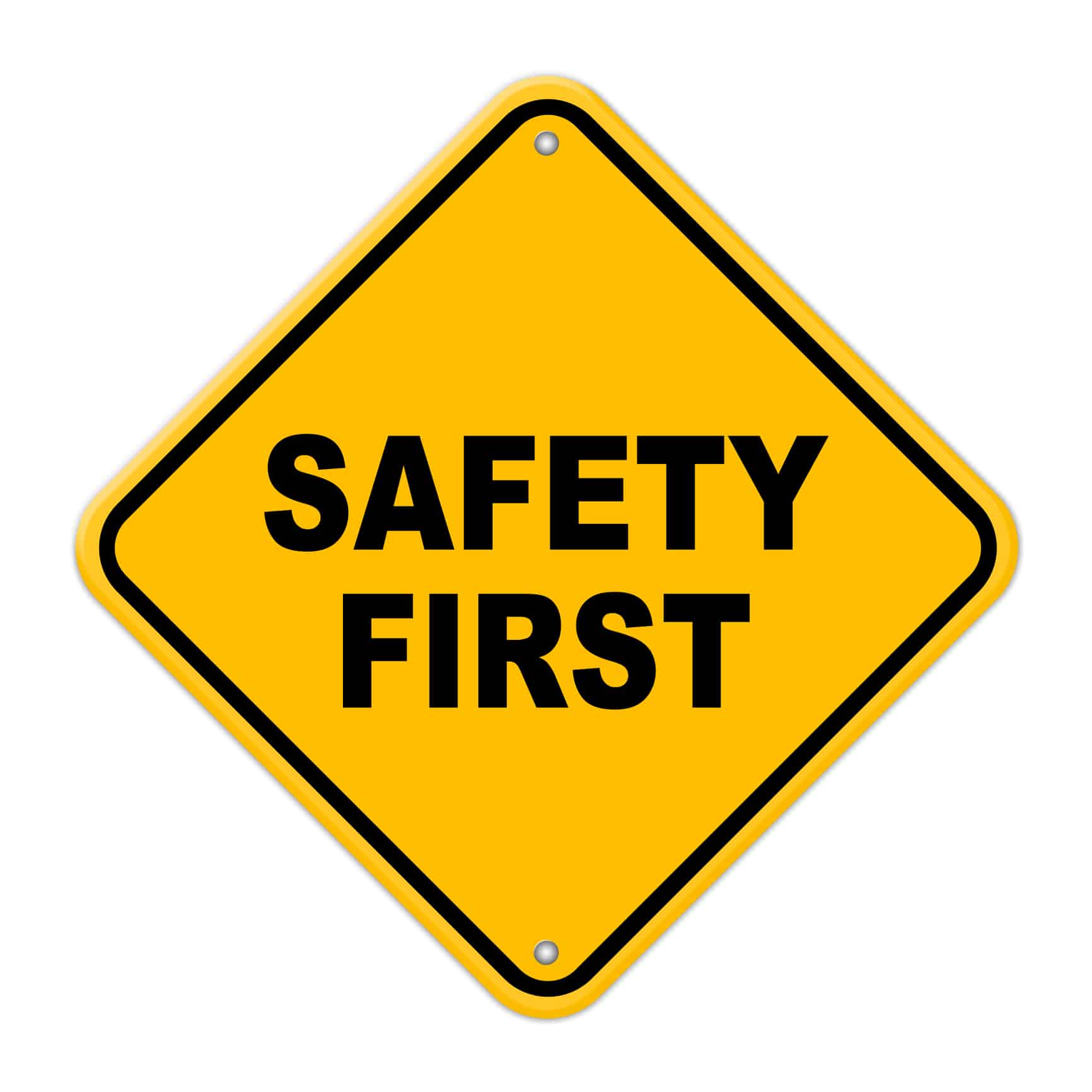
Essential Tips for HVAC Electrical Safety
Ensuring the safety of your home’s HVAC system is crucial, especially when it comes to electrical components. HVAC electrical safety is not just a matter of compliance but a necessity for protecting your home and loved ones from potential hazards. In areas like Fort Worth, Watauga, and North Richland Hills, TX, where temperatures can swing dramatically, a well-maintained HVAC system is essential. However, without proper safety measures, these systems can pose significant risks.
Understanding HVAC electrical safety can help prevent accidents before they happen. Many homeowners may not realize the complexities involved in their HVAC systems. These systems are more than just heating and cooling units; they are intricate electrical machines that require careful handling and knowledge to operate safely. By being informed, you can ensure that your system runs efficiently and safely.
In communities like North Richland Hills and Watauga, where HVAC systems are in constant use, awareness about electrical safety is particularly important. Simple precautions and regular maintenance can go a long way in preventing electrical mishaps. It’s about creating a safe environment where your family can enjoy comfort without worry.
This article aims to provide essential tips for HVAC electrical safety. By adhering to these guidelines, residents of Fort Worth and its surrounding areas can enjoy a safe, comfortable home environment. Remember, electrical safety is not just about preventing fires or damage; it’s about ensuring the well-being of everyone under your roof.
Understanding HVAC Electrical Safety Basics
Understanding the basics of HVAC electrical safety is the first step toward a secure home. Every homeowner should know how their system works and the potential electrical hazards it may pose. This knowledge not only ensures the system’s efficiency but also safeguards against common electrical issues. Regularly checking your HVAC system for any signs of wear or damage is a proactive approach to safety.
One important aspect of HVAC electrical safety is recognizing when to call professionals. If you notice unusual noises, smells, or a sudden lack of efficiency in your system, it’s time to seek expert help. Attempting to fix electrical problems on your own can lead to serious risks. Professionals in Fort Worth have the expertise to diagnose and solve issues safely and effectively.
To further enhance safety, ensure your HVAC system undergoes routine maintenance. This includes cleaning filters, checking wiring, and ensuring all components are functioning properly. Such maintenance not only prolongs the life of your system but also prevents electrical hazards. Residents in Watauga and North Richland Hills, TX, can attest to the benefits of regular system checks, especially during peak usage seasons.
Lastly, educating yourself and your family about HVAC electrical safety is crucial. Simple practices like keeping the area around your HVAC unit clear of debris can prevent overheating and potential fires. By staying informed and vigilant, you can enjoy a comfortable and safe home environment throughout the year. Remember, safety starts with awareness and is maintained through diligence and professional support.

Regular Maintenance: Key to Preventing Electrical Hazards
Regular maintenance is the cornerstone of HVAC electrical safety, ensuring systems run smoothly and safely. By scheduling routine checks, homeowners in Fort Worth can identify potential issues before they escalate into serious problems. These checks include inspecting electrical connections and testing the system’s performance. This proactive approach not only enhances safety but also ensures the longevity of the HVAC system.
Professionals play a crucial role in maintaining HVAC electrical safety. They possess the necessary skills and tools to conduct thorough inspections and repairs. For residents in Watauga, enlisting the help of these experts means avoiding the risks associated with DIY electrical work. Trusting professionals with regular maintenance can significantly reduce the likelihood of electrical hazards.
The benefits of regular maintenance extend beyond safety. In North Richland Hills, TX, for example, a well-maintained HVAC system operates more efficiently, which can lead to improved comfort and air quality in the home. Ensuring that filters are clean and components are in good working order supports the system’s efficiency. This attention to detail can prevent overheating and other issues that might lead to electrical dangers.
Educating homeowners about the importance of regular maintenance is key to preventing electrical hazards. Simple steps, such as changing filters and keeping the area around the HVAC unit clear, can make a significant difference. Awareness and action go hand in hand in creating a safe environment. By embracing regular maintenance, families can enjoy peace of mind, knowing their HVAC system is both safe and efficient.
Identifying Common HVAC Electrical Safety Risks
Identifying common HVAC electrical safety risks is essential for maintaining a secure home environment. One frequent hazard is faulty wiring, which can lead to overheating and potentially cause fires. Homeowners should regularly inspect their HVAC system’s wiring, especially if the system is older or shows signs of wear. If any issues are spotted, contacting a professional in Fort Worth for repairs is the safest course of action.
Another risk comes from overloaded circuits, a common issue in many homes. When the HVAC system shares a circuit with other large appliances, it can strain the electrical system, risking a shutdown or, worse, a fire. To prevent this, ensure your HVAC system has a dedicated circuit. This simple step can significantly enhance your home’s HVAC electrical safety.
Moisture accumulation poses yet another risk, especially in areas like Watauga where humidity levels can fluctuate. When water comes into contact with the system’s electrical components, it increases the risk of short circuits and electrical shocks. Regular checks for leaks or condensation around your HVAC unit can prevent these dangerous situations.
Lastly, neglecting regular maintenance can lead to a buildup of dirt and debris, which might obstruct airflow and cause the system to overwork. This not only puts a strain on your HVAC system but can also lead to overheating and electrical hazards. Residents in North Richland Hills, TX, can mitigate these risks by scheduling routine maintenance and ensuring their system is clean and well-maintained.
Safe Installation Practices for HVAC Systems
Ensuring your HVAC system is properly installed is a vital step toward maintaining electrical safety in your home. A professional installation guarantees that all electrical connections are secure and meet local codes, reducing the risk of electrical hazards. Experts in Fort Worth are trained to handle these installations with care, ensuring your system’s safety and efficiency from the start. Relying on professionals for installation can prevent common electrical issues that arise from improper setup.
Choosing the right location for your HVAC unit also plays a crucial role in electrical safety. The unit should be placed in a well-ventilated area free from obstructions to prevent overheating. In Watauga, selecting an optimal location helps maintain the system’s longevity and prevents electrical mishaps. Keeping the unit clear from debris and ensuring adequate airflow can significantly reduce the risk of electrical hazards.
Another important aspect of safe HVAC installation is ensuring the system is correctly sized for your home. An undersized or oversized unit can lead to inefficiency and increased electrical strain, posing a safety risk. Professionals in North Richland Hills, TX, can assess your home’s needs and recommend the appropriate size, enhancing both safety and performance. Proper sizing ensures your HVAC system operates efficiently, avoiding unnecessary electrical stress.
Finally, integrating your HVAC system with a dedicated circuit is a critical safety measure. This ensures the system has enough power to operate without overloading your home’s electrical system. It prevents the risk of fires and electrical failures, making it a key consideration during installation. By following these safe installation practices, homeowners can enjoy a reliable and safe HVAC system, contributing to overall electrical safety in the home.
The Importance of Professional HVAC Inspections
Professional HVAC inspections play a pivotal role in maintaining HVAC electrical safety within your home. These inspections, conducted by trained experts, ensure that all components of your HVAC system are functioning correctly and safely. In Fort Worth, a professional inspection can identify potential electrical hazards before they become serious problems. This proactive approach is essential for the safety and efficiency of your home’s heating and cooling systems.
During an inspection, technicians focus on the electrical aspects of the HVAC system, checking for any signs of wear or damage. In Watauga, this thorough examination helps in preventing electrical mishaps that could lead to safety hazards. By catching issues early, homeowners can avoid the risk of electrical fires and ensure their system operates smoothly. Regular inspections are a key defense against potential electrical dangers.
In addition to enhancing safety, professional HVAC inspections can also extend the lifespan of your system. By ensuring that all parts are in good working order, technicians in North Richland Hills, TX, can prevent the system from overworking. This not only reduces the strain on electrical components but also promotes energy efficiency. Keeping your system well-maintained through regular inspections is a smart move for any homeowner.
Ultimately, investing in professional HVAC inspections is an investment in your home’s safety and comfort. These inspections ensure that your system complies with local safety standards and operates at its best. For residents in Fort Worth and its surrounding areas, scheduling regular professional inspections is a crucial step in maintaining HVAC electrical safety. It’s a simple yet effective way to protect your home and family from electrical hazards.

HVAC Electrical Safety Tips for Homeowners
For homeowners looking to enhance HVAC electrical safety, understanding your system’s operation is key. Regularly inspecting your HVAC unit for signs of wear or potential electrical issues can prevent hazards. This proactive approach ensures the system remains efficient and safe, particularly during extreme weather conditions in Watauga. By staying informed about your HVAC’s functionality, you can avoid common electrical risks.
Implementing safety measures around your HVAC system can significantly reduce the risk of electrical accidents. Ensure there’s no water near electrical components to prevent short circuits. In North Richland Hills, TX, checking for moisture accumulation around your unit is crucial due to varying humidity levels. Keeping the area dry and well-ventilated helps maintain electrical safety and system efficiency.
Educating family members about HVAC electrical safety is also important. Simple steps, like not overloading power outlets and recognizing when to call professionals, can make a big difference. In every household, fostering an environment where safety is prioritized can prevent potential electrical mishaps. This awareness ensures that all family members contribute to maintaining a safe home environment.
Finally, don’t underestimate the importance of professional advice for maintaining HVAC electrical safety. Experts can offer tailored recommendations based on your specific system and home layout. Whether you’re in Fort Worth or surrounding areas, seeking professional guidance ensures your HVAC system operates safely and efficiently. By following expert advice, homeowners can enjoy peace of mind, knowing their HVAC system is not a safety hazard.
Responding to HVAC Electrical Emergencies
When facing an HVAC electrical emergency, the first step is to ensure everyone’s safety by turning off the main power supply. This immediate action can prevent further hazards and gives you time to assess the situation calmly. In cities like Watauga, where HVAC systems are crucial for comfort, knowing how to quickly cut off power can be a lifesaver. Always remember, safety first before attempting to troubleshoot any issues.
Next, assess the situation without touching any electrical components. If you notice signs of damage or malfunction, such as burning smells or visible sparks, it’s crucial to stay clear. Residents in North Richland Hills, TX, should then contact a professional HVAC service without delay. Professionals have the right tools and knowledge to handle electrical emergencies safely and efficiently.
While waiting for professional help, it’s wise to review what led to the emergency. Perhaps the system was showing signs of strain or there was a recent power surge. Understanding these factors can help prevent future incidents. It also provides valuable information that you can share with the technician, ensuring a more effective service.
Finally, once the emergency is resolved, discuss with your HVAC technician ways to enhance your system’s electrical safety. They can offer advice tailored to your home’s needs, from regular maintenance schedules to safety upgrades. By taking these steps, homeowners in Fort Worth and surrounding areas can minimize the risk of future HVAC electrical emergencies, ensuring a safer and more comfortable home environment.
Investing in HVAC Safety Devices and Upgrades
Investing in safety devices and upgrades is a smart move for enhancing HVAC electrical safety in your home. Technologies like surge protectors can shield your system from unexpected power spikes, reducing the risk of damage. In Watauga, adding a carbon monoxide detector near your HVAC unit can also alert you to dangerous leaks early. These simple additions can significantly improve the safety and efficiency of your system.
Regularly updating your HVAC system’s components can prevent electrical issues before they arise. For instance, replacing old, worn-out wiring with newer, safer options can minimize the risk of fires. Residents in North Richland Hills, TX, can benefit from consulting with professionals to identify which upgrades will most effectively boost their system’s safety. Staying ahead of maintenance and upgrades can keep your system running smoothly and safely.
Smart thermostats are another valuable upgrade for enhancing HVAC electrical safety. These devices allow for better control over your heating and cooling, preventing the system from overworking. By efficiently managing your home’s climate, you not only save energy but also reduce the strain on your HVAC’s electrical components. This proactive approach can extend the life of your system and ensure it operates safely.
Lastly, regular professional inspections can identify when it’s time for safety upgrades or replacements. Experts can assess your system’s condition and recommend specific devices or improvements tailored to your needs. Whether you’re in Fort Worth, Watauga, or North Richland Hills, TX, leveraging professional advice ensures your HVAC system remains a safe, efficient part of your home. By investing in these safety measures, you can enjoy peace of mind and a comfortable, secure environment year-round.
Frequently Asked Questions
What are common HVAC electrical hazards?
Common HVAC electrical hazards include faulty wiring, overloaded circuits, and exposed wires. These issues can lead to fires or electric shocks. Regular maintenance helps identify and fix these dangers early. Ensuring your HVAC system is properly installed also plays a key role in preventing electrical safety risks.
How can I prevent HVAC electrical accidents?
To prevent HVAC electrical accidents, ensure regular professional inspections of your system. These checks can catch issues like faulty wiring before they become hazards. Additionally, avoid overloading circuits by not plugging too many devices into one outlet. Installing a surge protector can also safeguard your HVAC system from unexpected power surges, further enhancing HVAC electrical safety in your home.
What is HVAC Electrical Safety?
HVAC electrical safety involves taking steps to prevent accidents and hazards related to your heating, ventilation, and air conditioning system. It includes ensuring that all electrical connections are secure and up to code. Regular maintenance checks help identify potential risks early on. By focusing on these safety measures, homeowners can enjoy a comfortable and secure living environment.
When should I inspect my HVAC system?
Inspecting your HVAC system should happen at least twice a year, ideally in spring and fall. This timing ensures your system is ready for the extreme temperatures of summer and winter. A professional can spot any potential HVAC electrical safety issues before they turn into major problems. Regular checks keep your system running efficiently and safely, protecting your home and family.
Why is HVAC Electrical Safety important?
HVAC electrical safety is crucial for preventing fires and electric shocks in your home. By ensuring your system is free from faulty wiring and other hazards, you protect your family and property. Regular maintenance and professional inspections play key roles in identifying risks early. Ultimately, focusing on these safety measures helps maintain a comfortable and secure environment for everyone.


